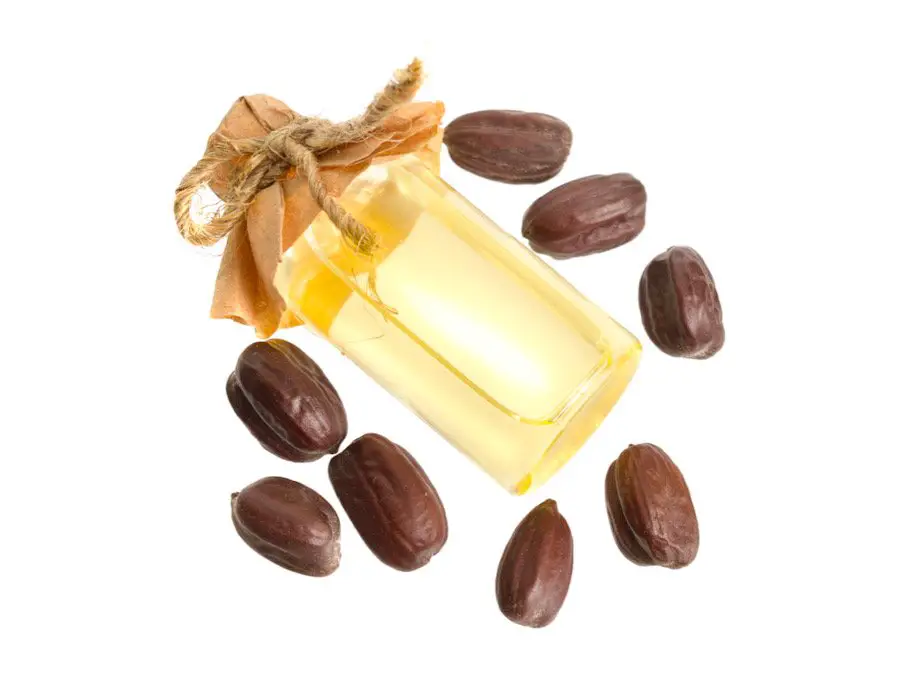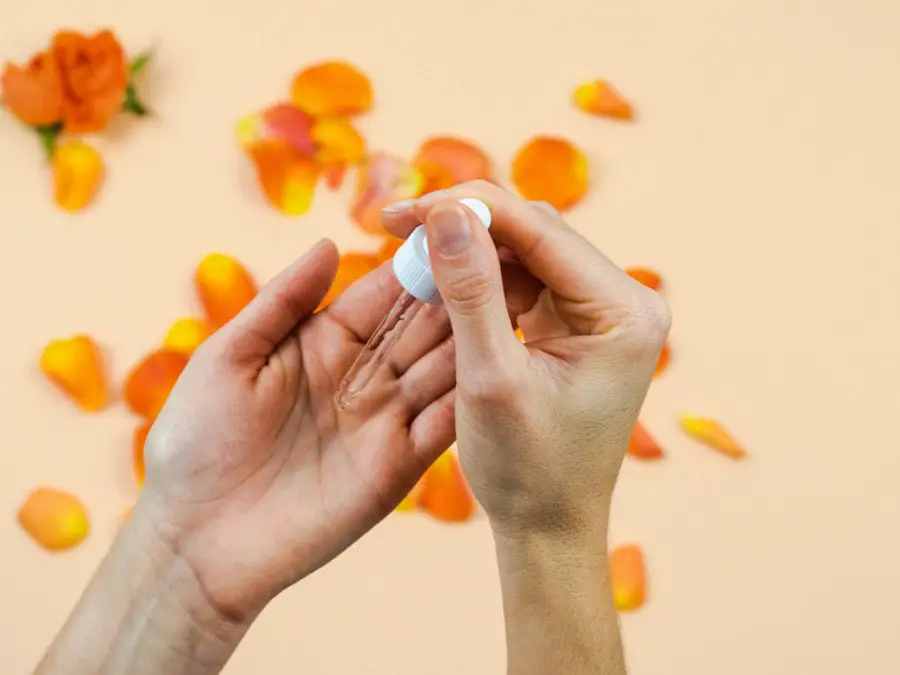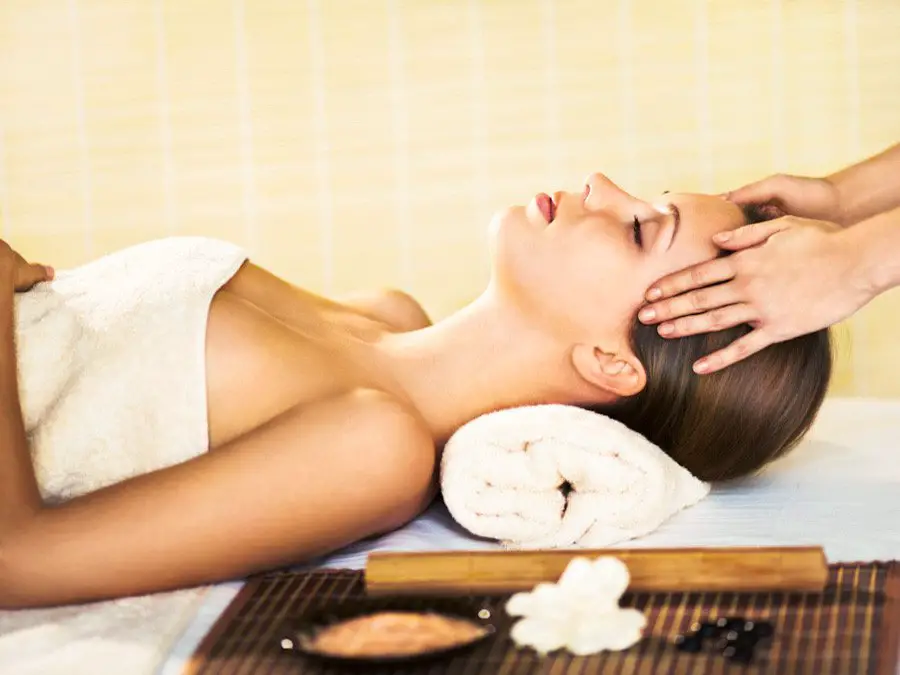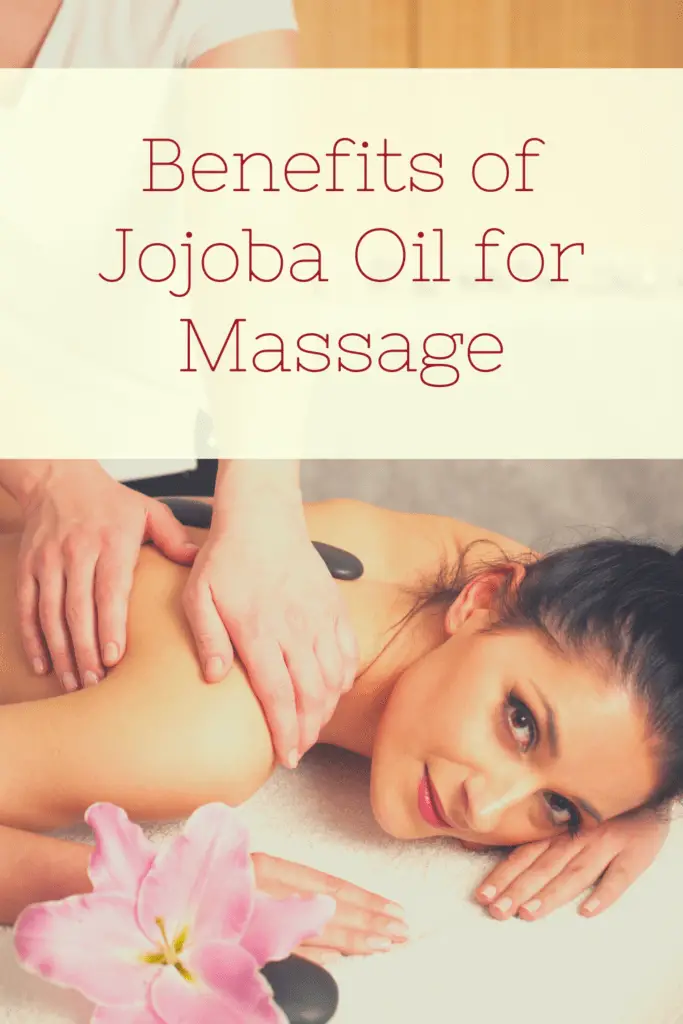Once you decide to use massage oil, the options can seem endless. Which is best? One you may hear about a lot is jojoba oil. It gets talked about for facial and hair care. But is jojoba oil good for massage?
For most skin types, jojoba oil is excellent for massage. This oil has been shown in studies to have antibacterial and anti-inflammatory properties, making it a good choice for people with acne-prone or sensitive skin. It also blends well with essential oils, doesn’t leave the skin feeling greasy, and has a long shelf life.
While everyone’s skincare needs are unique, jojoba oil is one of the most popular massage oils.
Table of Contents
What is Jojoba Oil?
To begin with, this famous oil isn’t actually an oil. It’s a wax, though you’d never know it from touching it. The substance is light and slippery between your fingers. Because it’s a wax instead of an oil, it has a lot of benefits in key areas where oils may be a problem for some skin types.

Massage oils go over the skin, locking in moisture. You can better understand this when you compare it to lotion, which is absorbed by the skin. Some people benefit from the way oils lock moisture into the skin, while it leads to acne for others.
Jojoba oil does glide over the skin, but it absorbs faster than other massage oils. This is why it doesn’t feel as greasy and why it can be better for people with acne-prone skin. Because it still feels like any other massage oil, you can get some glide with it, but it probably isn’t the best for a massage where a lot of glide is preferred. As a massage oil, jojoba may work better for deep tissue massages.
A fun fact is that you may be reading the name of this oil incorrectly. Jojoba is actually pronounced ho-ho-bah.
What Are the Benefits of Jojoba Oil as a Massage Oil?
Let’s go over the key benefits of jojoba oil for massage.
- The best choice for acne-prone skin.
- Blends well with other carrier oils or essential oils.
- Has a long shelf life.
- Won’t leave you feeling greasy.
- Has a neutral scent.
- Has been shown to have anti-inflammatory properties.
- It doesn’t stain most fabrics.
- Is one of the more affordable massage oils on the market.
What Are the Downsides of Jojoba Oil for Massage?
Let’s talk about some of the negatives of jojoba oil. These are only negatives if they apply to you, so it’s about what option will best suit your needs.
Jojoba oil isn’t prone to staining most fabric types. This is good news for your sheets, which are easily stained by many different massage oil types. If your sheets are microfiber or another synthetic fiber, they may be more prone to being stained by jojoba oil though. So, you still need to be mindful. If staining your sheets is a concern of yours, you will find more options in my article ‘Which Massage Oil Won’t Stain my Sheets.’
This massage oil absorbs quickly in the skin. Above, that was outlined as a positive note for the oil. However, that does mean it needs to be reapplied often when you’re using it. It’s also not the best for long glides over the length of your limbs or back.
Is Jojoba Oil Safe For Sensitive Skin?

Does your skin tend to be dry? Does it have strange reactions like hives or other issues? Sometimes people with sensitive skin have a clear idea of what their skin is sensitive to, but for a lot of people, it can be a surprise what your skin will and won’t react to.
Overall, jojoba oil is a strong choice as a massage oil for people with sensitive skin. However, sensitive skin can be unpredictable, so you never want to assume that anything is perfectly safe, even a natural jojoba oil.
In order to protect yourself, you’ll want to do a test patch, which we will go into in more detail in a section down below.
You should also make sure you are buying pure jojoba oil. Now, buying a massage oil that is mixed with other carrier oils or essential oils is a fun thing to do. You can find ones that still use natural ingredients and are generally good for most skin types. However, if you know you have sensitive skin, it may be best to test with just pure jojoba oil first. This way if you have a reaction, you’ll have more clues to what is causing it. If you have a reaction to a blended massage oil, you won’t know if it’s jojoba or an essential oil in the mix.
To make sure you’re buying just jojoba oil, look at the ingredient list on the bottle.
Can People With Acne Use Jojoba Massage Oil?
People with acne can use jojoba oil, but like people with sensitive skin, you’ll want to be careful to test the massage oil slowly in order to see how your skin reacts.
Because massage oil glides over the skin and locks in moisture, it can be hydrating for some people. For people with acne-prone skin, it can lock in too much oil when combined with your natural skin oils, and cause breakouts.
Jojoba oil absorbs more quickly and has been shown in studies to have anti-inflammatory properties when applied topically. This means it can help hydrate your skin while also helping soothe breakouts. Some people use jojoba oil to prevent acne. However, proceed with caution. Everyone’s skin is different, so you’ll need to mindfully see how your skin reacts.
How To Safely Try Jojoba Oil

You’ll want to do a test patch.
If you’re worried about having sensitive skin, you can apply jojoba oil to your inner arm and tape a bandage over it. Some people will do this and then check under the bandage an hour later for a reaction, but the safer bet is to try this before bed one night and then see how it is in the morning. That gives your skin plenty of time to have a reaction.
For people with acne-prone skin, there is more to be concerned about. Testing the jojoba oil on your inner arm isn’t as likely to cause a breakout, since that’s an uncommon problem on that part of the skin anyway. Instead, you may want to try some jojoba oil in an area the size of your palm, possibly on your upper back. Don’t apply to your whole back the first time, just a small area. Then see how it is doing the next day. Then, try using the massage oil a bit more, slowly, in different areas. This way, if you discover that it’s not working for you, it will only be a minor inconvenience as opposed to a full-body problem.
How Long Does Jojoba Oil Last?
Typically, pure jojoba oil will last in the bottle for about five years. Applying rancid massage oil to your skin can cause breakouts, which is a very strong positive for jojoba oil. However, keep in mind that if your jojoba oil is a blend, any other ingredients involved will shorten the shelf life by a lot. The mixture of essential oil with the jojoba oil will accelerate the breakdown of the chemical makeup of both the jojoba oil and the essential oil. Pay attention to the dates on the bottle you purchased.
Jojoba Oil Is a Good Massage Oil For Most Skin Types

There are always exceptions, so above we’ve gone into how to proceed with caution. However, most skin types are safe to enjoy jojoba oil for a quality massage experience.


